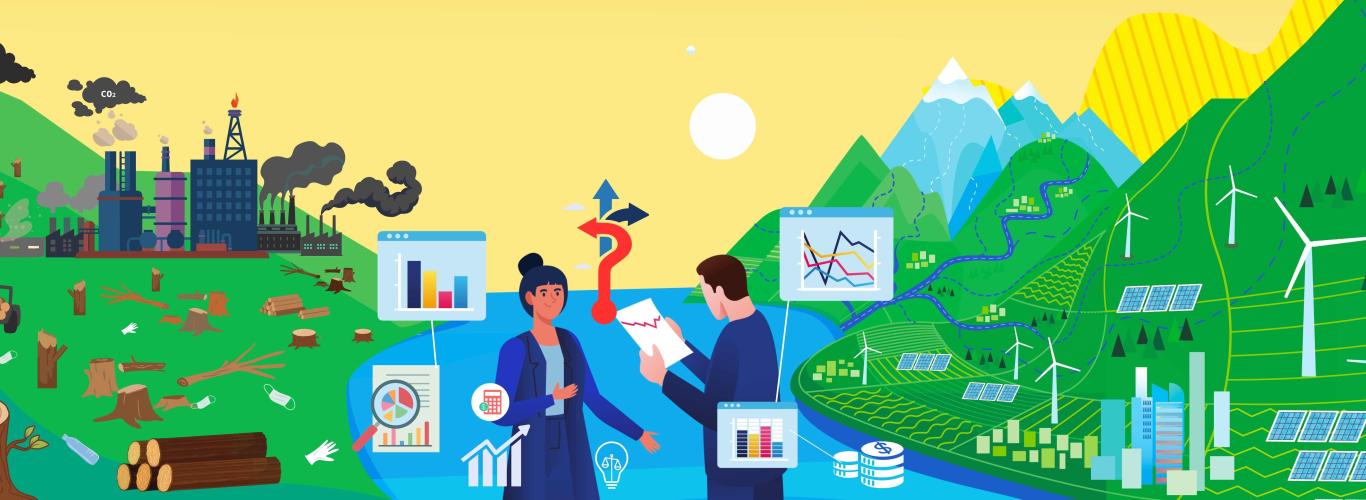WIT Centre Collaborates with European Union for Net-Zero Strategies.
Executive Director of the Centre for Water Informatics and Technology (WIT), and Associate Professor of Electrical Engineering, Dr. Abubakr Muhammad at the Syed Babar Ali School of Science and Engineering, LUMS, has won the grant for an international project funded by the European Commission’s Directorate on Climate (DG CLIMA) to model greenhouse gas (GHG) emissions and identify global transitional pathways for their reduction.
This awarded funding is aimed at a project titled "COMMITTED: Climate pOlicy assessment and Mitigation Modeling to Integrate national and global TransiTion pathways for Environmental-friendly Development". The scope of this project is in line with the Paris Agreement’s main goal of restricting the increase of the global mean temperature to 1.5 degrees Celsius. To ensure compatibility with long-term temperature goals, the project emphasises the need for greenhouse gas emissions to be reduced to up to 30 percent as a short-term goal (by 2030). To that end, multiple European modeling teams as well as several Asian modeling teams will collaborate on identifying mitigation strategies, developing national long-term scenarios, and reducing greenhouse gas emissions.
Director WIT, Dr. Abubakr Muhammad, talks about the project, "In Pakistan, people usually talk about climate change adaptation and much of our center’s work is related to the adaptation of the water and agriculture sectors in the wake of climate change in South Asia and the region. Although, Pakistan is not a main polluter of GHG emissions, we sometimes forget that the measures for adaptation overlap heavily with those for mitigation. To give you an example, if we can turn our agricultural sector around through techniques of sustainable agriculture such as precise delivery of inputs, soil regeneration, efficient water management, and the use of renewable energy on the farms, we may also be able to the carbon and nitrogen footprints of our agricultural activity. A country like Pakistan can take advantage of viewing these measures as part of a net-zero strategy, even as it solves its basic problems of environmental change and socio-economic development."
Through the distinctive research exchange initiative within the project, the Asian partner organisations, including LUMS, will be able to advance their research and build capacity with the support of a European partner organisation each. To guarantee that there is enough capacity in all Asian nations, the robustness and policy relevance of the national-level energy-economy models and scenarios will therefore be reinforced.
Dr. Talha Manzoor, Assistant Professor of Research at WIT, LUMS, shares his views about the project, "The project aligns perfectly with the Centre’s mission to identify pathways for sustainable development in the Indus Basin, by obtaining deeper understandings of how human interventions affect complex human-natural systems in the long term. While the project itself focusses on reducing GHG emissions through interventions in the energy and agriculture sectors, the framework also encompasses other major sectors through the Climate-Water-Energy-Food Nexus. Therefore, the COMMITTED project presents an excellent opportunity for us to build capacity for scientifically informed decision making at a national and regional level."
Another salient objective of this project is to identify transitional pathways in the agriculture and energy sectors, as these sectors account for a major share of these GHG emissions globally. Multiple workshops, trainings, and stakeholder dialogues will also take place under the project to enhance the capacity of experts and policymakers to understand how model-related insights can inform key policy decisions for the low-emissions transition.
To learn more about the COMMITTED Project and WIT team's role in it, visit the Project Webpage.





